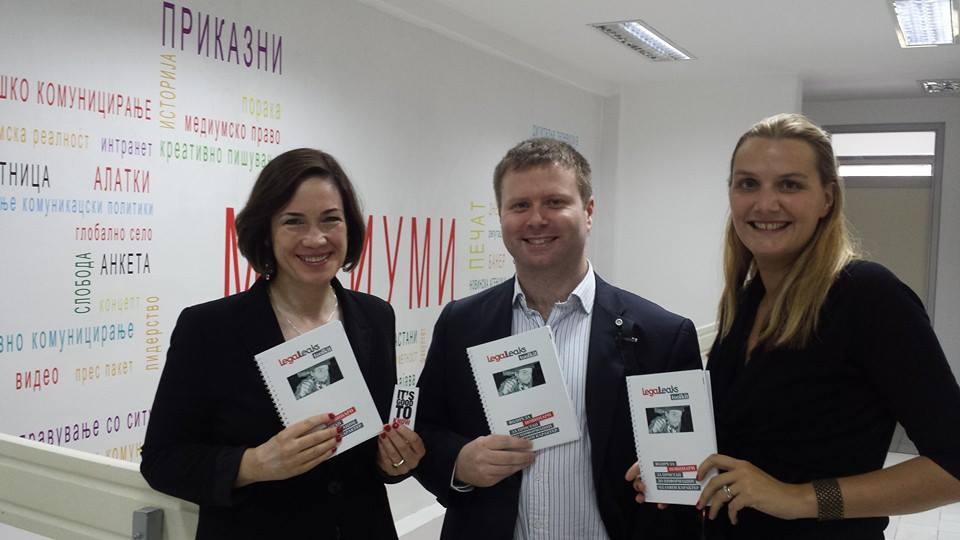Skopje, 20 October 2014 – In the context of the South East Europe Media Forum, a regional conference organized with the support of UNESCO and the European Commission, Access Info Europe and UNESCO held its 6th Legal Leaks training seminar in the South East Europe region in collaboration with the Macedonian Institute for Media.
The training took place in Skopje on 16 October 2014 and had as trainers: Helen Darbishire, executive director of Access Info Europe; Victoria Anderica, legal researcher and campaigner in Access Info Europe; and Gavin Sheridan, investigative journalist and FOI expert.
The Macedonian version of the Legal Leaks Toolkit, a guide for journalists on how to access public information, was presented and distributed to the participants of the training and is also available online. The toolkit, which was written by Access Info Europe and n-ost, has been adapted to the Macedonian Legal Framework by the Center for Civil Communications.
The former Yugoslav Republic of Macedonia scores 130 point in the Global Right to Information Rating, which means that it has a good access to information law on paper. The journalists participating in the workshop highlighted some problems of the system in practice: many public institutions claim they don’t hold the information requested, even when it is highly probably that in fact they do; deadlines for providing information are often not respected; the proactive publication of information is poor; and finally sensitive information is difficult to access.
The first session, led by Victoria Anderica, analysed the definition and scope of the right of access to information from a national and international perspective. She presented five tips that journalists should take into account when accessing information in particular the importance of knowing the exceptions of the law, being aware of the deadlines, not being afraid of requesting sensitive information.
During the second session lead by Helen Darbishire, the journalists got to know Asktheeu.org, an online platform for requesting information from the European Union. She also advised journalists to adopt the strategy of requesting information in other countries or from the EU when they are not able to obtain it at home.
«Access to information can be an investment for your future, the information you request now can turn into a big stories in a few months’ time«, says Helen Darbishire when explaining the reasons journalists should use access to information laws.
Darbishire added that it’s also a way to defend the right: «By putting FOI stories in the media, journalists are reminding the public and the other journalists the importance of the right of access to information and its link to freedom of expression.»
The final session was lead by Gavin Sheridan who presented a series of high profile stories written in Ireland using information obtained via FOI requests. Gavin explained how to prepare an FOI request, how to know what is the exact information that one need to ask, and how to get to know the system, including how information is stored by public bodies.
«The better you know the bureaucracy, the more precise your requests for information can be, and the better chance you have to get an answer«, commented Sheridan. This session was also an opportunity for the journalists participating in the training to get learn about online program for analysing data.
The training took place in the framework of the EU-funded project «Media Accountability in South East Europe».

